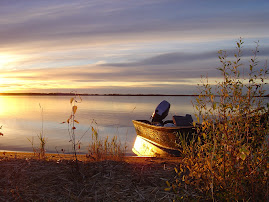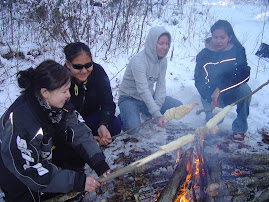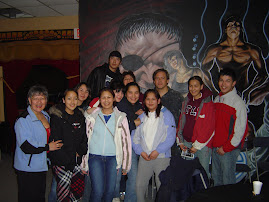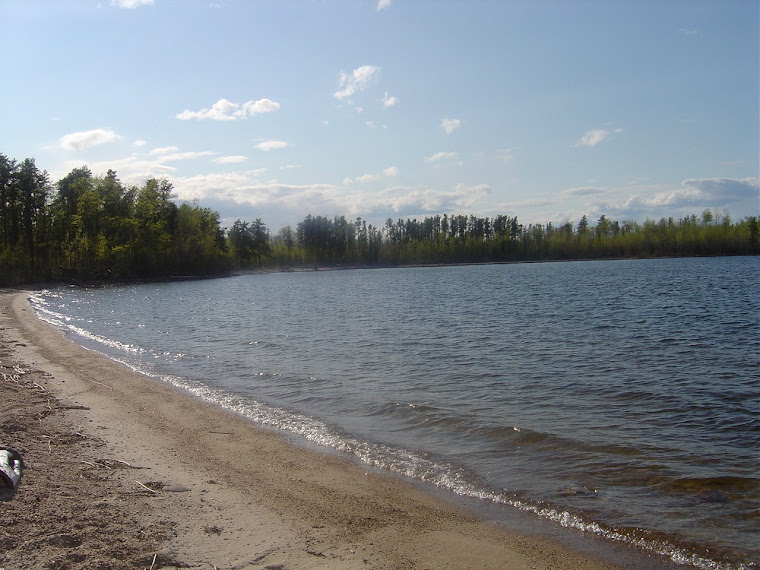http://ca.youtube.com/watch?v=ABktWm0yFPg
This short video clip clearly states what life is like for First Nations students who feel a connection to the land yet the Federally run schools do not see importance in implementing programs in these small communities that could "save" one or two from "falling through the cracks". Social contructivism means .."knowledge contructed by learners as they attempt to make sense of their experiences" and..."it is their socio-culture environment in which people live which is really important in terms of deriving the way the group derives meaning from learning and the individuals within the group..." and..."Aboriginal people....they seem to have a very strong group culture...which is different from the westerners..." Would one say then that as First Nations learners, we are meeting their needs?
Free Download: Chip Kidd: Book Two by Chip Kidd PDF
12 years ago






4 comments:
Are we meeting the needs of First Nations students on reserves? Well I can honestly say that we are not meeting the needs of many First Nations students within the city so I can imagine the same is true on the reserves. While I would hope and imagine that there are more cultural connections within reserve schools for Aboriginal students, I would imagine that the curriculum, developed by “white” educators, leaves much to be desired.
At the same time, all I have to do is look at my own sons, the youngest just having graduated from high school, to see the disconnect they felt with the learning program. Our learners need to see meaning and relevance in what they do and what they are “tasked” to do. I have shared in several workshops with teachers that my sons each saved 4 things from their high school years. Everything else went into the trash. One son saved everything to do with a high school production that he helped manage. The other son saved an English project that was a personal credo assignment. Both of these represent something that was a powerful learning experience filled with challenges and personal rewards. Each of them also saved their wood working projects from their PAA classes because they designed, crafted and finished these projects feeling a sense of accomplishment.
I share this with other educators as I wonder what that says about the learning artifacts we have students produce along the way. If, in 4 years of high school, a child only has 4 things he sees as being worthy of keeping and preserving, does this mean that there is a lack of meaning and relevance in much of what students do? Does student learning fuel their identity making process or does it dampen it?
Kevin Kumashiro states that context is the window of understanding. I believe that meeting the needs of learners can only happen if teachers know who their learners are, understand how they learn and what they need in order to learn, and build on their interests and strengths within their own contexts.
Marnie
thanks Rheda. If you have time, could you email the way to do that? Do you just cut and paste??
Also, Rheda, you might want to take a look at Tim's blog. He's seeing some of the same stuff that you are and puzzling over it too. He taked about learning life skills and it really rang true with me. It's kind of about connections for us as teachers and the students hey?? darcy
I support your belief of social constructivism in First Nations learning. It is unfortunate that our current curriculum is not conducive to this form of learning. Through the use of grades we create competition and individualism. A new curriculum needs to be developed to maintain the collectiveness of First nations society. What would you include in the curriculum to support the sense of belonging? I am thinking beyond academics.
In the last thirty years there are many F.N. and Metis people who have graduated from teacher education programs. What are your thoughts about how effective these people have been in creating change that will benefit people on reserves? Have we improved the systems or have we just followed the same old trends that are failing our F.N. and Metis students? Can we honestly say that our numbers of graduates have improved and are there more successful F.N. people to prove that we have contributed to positive changes in F.N. lives?
Post a Comment